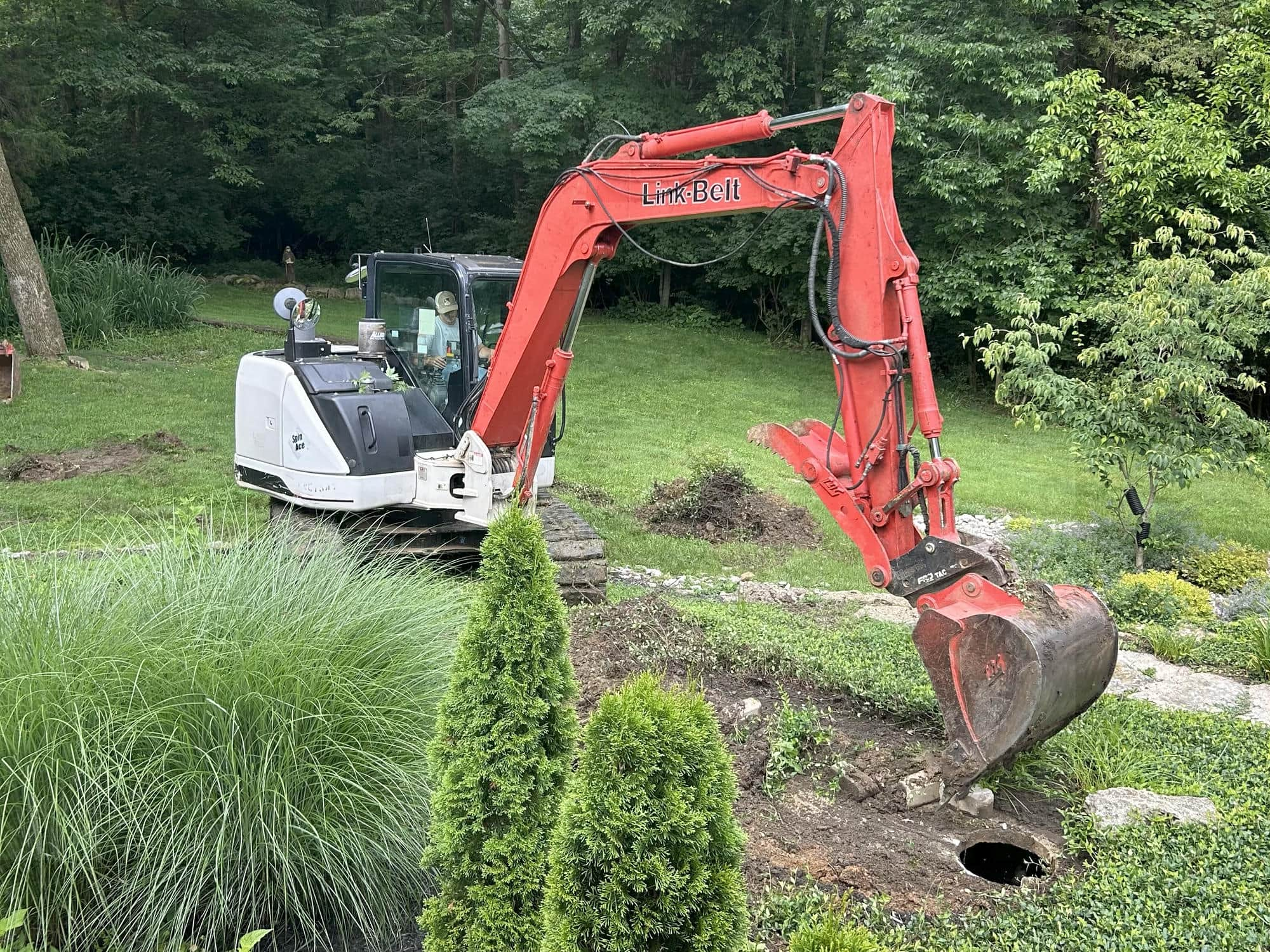Do you really need septic tank additives? The case against enzymes explained!
Many homeowners rely on septic tank treatments with enzymes or bacteria, thinking they’re helping their system. In this blog, we dive into what these additives actually do, why they’re often harmful, and how to maintain a healthy septic system without wasting money.


The Truth About Enzymes and Additives
Septic additives are often marketed as a quick and easy way to “boost” your septic system’s performance, especially those containing enzymes or bacteria, like RID-X and similar products. But are they really necessary?
The truth is, these treatments are not only unnecessary for a healthy system, they can actually cause harm over time. If you're a homeowner relying on septic treatments to maintain your system, this article is for you.
Let’s break down how your septic system works, why additives may do more harm than good, and what you should do instead.
How a Septic Tank Naturally Maintains Itself
A healthy septic tank is like its own self-regulating ecosystem. Over time, it naturally separates waste into three distinct layers:
- Scum – the top layer made up of fats, oils, and lighter materials
- Effluent – the liquid middle layer that eventually flows out to the drain field
- Sludge – the heavier solids that settle at the bottom
Each layer plays an important role. Together, they keep solids contained in the tank while allowing only clarified liquid to exit—helping your system run smoothly without outside additives.
What Happens When You Add Enzymes or Extra Bacteria?
While they may be marketed as helpful, many enzyme-based septic treatments can actually disrupt your tank’s natural balance. Here’s how:
1. Disrupts the Ecosystem
A septic tank is a self-sustaining environment where human waste produces all the bacteria needed to break down and digest solids. No outside help required!
When you add store-bought bacteria or enzyme treatments, you’re essentially introducing foreign microorganisms into an already stable ecosystem. These new organisms can outcompete, weaken, or even kill the native bacteria. Instead of improving performance, this “war” can disrupt digestion rates, alter the decomposition process, and reduce the system’s overall efficiency.
2. Breaks Up Essential Layers
Some enzyme products break down solids too aggressively, causing the 3 septic layers to become unsettled and begin to mix. This can push solids into the drain field, leading to clogs or premature failure.
3. False Sense of Security
Enzyme and bacteria additives are often marketed as a “maintenance shortcut” that can reduce or even eliminate the need for septic pumping. Unfortunately, this creates a dangerous misconception for homeowners.
Believing the additives are “doing the work,” people may delay essential services - especially pumping - far beyond the recommended schedule. While the tank might seem fine on the surface, solids are quietly building up at the bottom of the tank and potentially overflowing into the drain field, where they cause clogs, backups, and even full system failure.
No additive can physically remove sludge from a septic tank. The only way to safely and effectively get rid of solids is through professional pumping. Regular service not only protects your system but also allows a trained technician to inspect for early signs of problems, saving you from costly, avoidable repairs.
What You Should Do Instead
If you want to keep your septic system healthy and long-lasting, here are three proven steps to take:
1. Stop Using Enzyme or Bacterial Additives
Your system naturally maintains its own bacterial environment. All it needs is human waste and water to operate effectively.
2. Watch What You Flush
Support your system’s natural bacteria by keeping non-biodegradable items out of your drains. That means:
- No “flushable” wipes
- No feminine hygiene products
- No grease, harsh chemicals, or medications
Stick to toilet paper, human waste, and household wastewater only!
3. Pump Your Tank Every 3–5 Years
Routine septic tank pumping is the best way to prevent build-up, protect your drain field, and catch small issues before they become expensive repairs. And believe it or not, getting your tank pumped every 3-5 years is actually cheaper than the what you would spend on additives in that time!
The Bottom Line
Septic tank additives may seem like a smart solution, but they’re actually unnecessary and potentially harmful. Trust the natural process, follow proper usage habits, and schedule regular pumpings to keep your system running efficiently for years to come.
If you're unsure whether your system is due for pumping or inspection, give us a call. As Kentucky’s first Master Septic Installer, we’re here to help homeowners make informed decisions that protect their property and save money!
